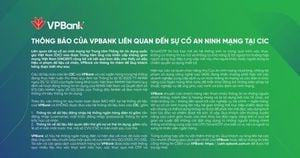With 2025 on the horizon, businesses worldwide are under pressure to adopt new technologies to remain competitive. A distinctive focus is the burgeoning role of artificial intelligence (AI) as companies strategize to leverage its capabilities for enhanced productivity, customer engagement, and operational efficiencies.
According to industry experts, AI is set to revolutionize the business environment. Companies are increasingly prioritizing AI not just as a trend but as a central pillar of their strategic planning. The potential benefits are vast: improved decision-making, streamlined processes, and increased organizational efficiency.
AI tools like chatbots and virtual assistants, such as ChatGPT and Google Bard, are transforming customer interactions. These technologies, powered by advanced natural language processing, enable businesses to automate responses and manage inquiries efficiently, delivering real-time, personalized customer service.
Machine learning and deep learning are changing the game when it involves data analysis. Tools like Power BI and Tableau empower businesses to analyze massive volumes of data, allowing real-time insights and trend detection to guide strategic decision-making.
The combination of generative AI with robotic process automation is streamlining repetitive tasks and minimizing human error, resulting in heightened operational efficiency. Platforms like UiPath and Automation Anywhere are at the forefront, automizing administrative responsibilities such as accounting and document management.
Customer Relationship Management (CRM) systems have also embraced AI, with solutions like Salesforce Einstein and Hubspot leveraging AI to customize customer interactions. These intelligence-enhanced platforms analyze customer behaviors and preferences to recommend sales strategies, improving retention and customer loyalty.
Marketing strategies are being redefined by AI tools such as Marketo and Adobe Sensei, which utilize generative text models and natural language processing. Marketing teams can now streamline campaign planning and content automation, personalizing strategies to drive engagement and conversion rates.
Financial fraud prevention is another domain where AI is making strides. Tools such as SAS Fraud Management and Kount analyze behavioral patterns to identify suspicious activities, enhancing security measures before fraud can occur.
AI's predictive capabilities extend to supply chain management. Tools like Amazon Forecast utilize historical data and real-time information to predict product demand, helping businesses avoid shortages and reduce operational costs significantly.
Cybersecurity has become increasingly complex, with threats growing more sophisticated. Platforms such as Darktrace and Palo Alto Cortex use AI to detect anomalies and predict cyberattacks, providing businesses with proactive security measures to mitigate risks.
AI also enriches customer sentiment analysis, providing insights from social media and surveys. Companies can gauge public perception through tools like MonkeyLearn and Lexalytics, using this feedback to refine their strategies and improve customer experiences.
Logistics and transportation are another focal point for AI innovations. Intelligent route planning solutions such as Route4Me and Project44 can optimize transport routes, reducing costs and improving efficiency.
Meanwhile, design and content creation are being reshaped by AI, with tools like Canva and Adobe Firefly automizing design processes, saving time, and enhancing creativity.
Financial planning benefits from AI systems, too. Tools like Alteryx and Tesorio employ predictive models to streamline budgeting and investment strategies, leading to informed financial decisions.
Personalization stands as one of AI’s standout features. Tools like Optimizely and Dynamic Yield tailor user experiences by analyzing behaviors and recommending interactions based on individual preferences.
Predictive maintenance using AI is seeing increased adoption, with platforms like IBM Maximo and GE Predix analyzing real-time data to forecast machinery failures, allowing firms to schedule maintenance proactively and save costs.
For businesses aiming to improve efficiency and competitiveness by 2025, adopting these AI tools is not just beneficial; it’s imperative. The comprehensive automation afforded by AI—from virtual assistants to predictive maintenance—will optimize business processes and refine decision-making.
Turning the spotlight to Catalunya, the region has become home to numerous tech hubs illustrating significant growth over the past seven years. The annual report from Mobile World Capital Barcelona highlights the evolution of these tech spaces and trends relevant to the digital talent market.
The 2023 report revealed Catalunya hosts 140 tech hubs, creating over 5,200 jobs, with the entire tech ecosystem contributing significantly to the region's economy, boasting over 2.544 billion euros annually. The circular trend of growth signifies opportunities for the future, especially as cities compete for global tech leadership.
Notably, Mastercard predicts considerable changes to payment methods set to occur across Central America by 2025. Technologies like blockchain, tokenization, and contactless payments are expected to significantly influence transaction approaches, both for consumers and businesses.
The switch to biometric passkeys signals the phasing out of traditional passwords, aiming for enhanced security. This transition benefits entities by enabling automated reconciliations and improving financial controls.
Contactless payments are surging, with systems already operational through public transport networks, exemplifying the drive for faster, more convenient payment methods. Technologies such as Tap on Phone are democratizing payment acceptance, fostering entrepreneurship.
Each of these developments reflects the rapidly advancing technological environment. For businesses ready to adopt, the integration of AI, innovative payment solutions, and the growth of tech hubs portrays not only the near future but also the potential for significant economic impact.
Realizing the value of AI and technology integration, companies are gearing up for new milestones as they navigate this transformative period—leveraging these insights to redefine their strategies for the future.



